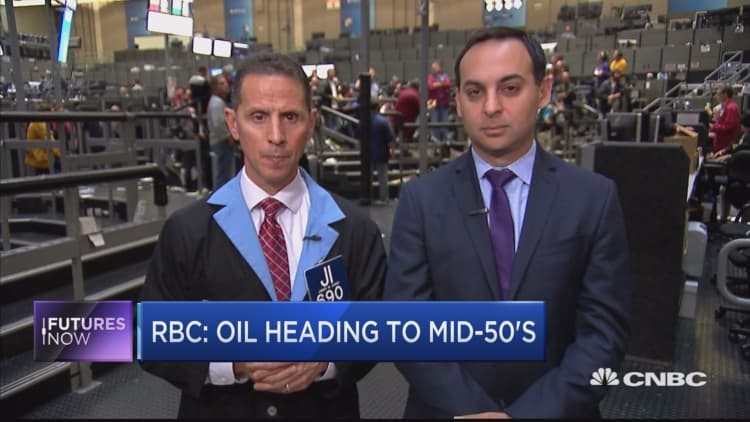


If you're looking for clues as to what the next key catalyst for oil could be, you might want to pay attention to one country in particular.
"We think India is roaring right now and will be a key driver of demand," Helima Croft, managing director and Global Head of Commodity Strategy at RBC Capital Markets told CNBC's "Futures Now" last week.
Recent data shows that demand for oil in the country just grew at the fastest pace for any three-month period in the past 10 years. Simultaneously, India voracious demand for oil recently hit a record, consuming more than 4 million barrels per day, according to International Energy Agency figures.
Global oversupply and larger economic and political issues in countries like Nigeria and Venezuela have been putting downward pressure on crude prices, Croft said. She added that RBC expects "near term choppiness," citing problems at New York Harbor and with product exports from Chinese tea pot refineries.
Recent broad macro-economic factors such as Britain's decision to leave the European Union and fluctuations in China's economy will also weigh on the oil market and may drive prices down.
Although China's demand for oil is muted, increased demand from India leads Croft to think that Brent crude prices could still end in the mid $50 per barrel range by the end of this year. She expects to see prices below $50 at the end of the third quarter, and in the mid-50's by the end of the fourth quarter in 2016.
"We think this market is balancing and we think we will have moved out of the product glut story by then," Croft added.
Croft said OPEC countries from the Middle East, like Saudi Arabia and Iran, have defied expectations, and not flooded the market with more barrels.
'We are not petrified'
Economic and political disruption in Nigeria and Venezuela could be a continued "stress producer" for oil production, she added.
Nigeria is suffering outages due to militant activity and production in Venezuela is dropping due to a lack of cash, service provider cuts and power outages. These situations could get even worse, she said.
Libya remains a wild card in terms of additional short term supply, Croft said. Eastern supply terminals in Libya have been closed since 2014 because of conflict between rival armed factions fighting for control of the ports. The U.N. backed government in Libya is now in talks with an armed brigade controlling two oil ports to reopen the terminals, Reuters reported on Monday.
"So if you do get those eastern terminals reopened in Libya and you do get a couple hundred thousand additional barrels on the market that would be another leg lower in terms of prices," Croft said.
With these countries' situations playing into the global crude market, Croft said the product glut shows a bearish sentiment right now. However, RBC expects the supply and demand picture to improve in latter half of 2016.
"We remain cautiously constructive on demand we do not see this going over a cliff and we are not petrified of some fall off in Chinese demand," Croft said.



